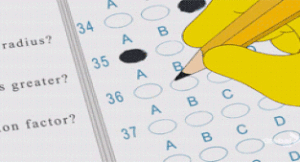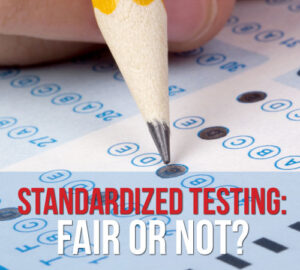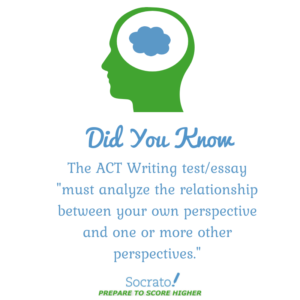by Labhesh | Oct 18, 2020 | ACT, Motivation, study abroad
“Have something to say, and say it as clearly as you can. That is the only secret of style.”
– Matthew Arnold

Two Important Notes before you appear for the ACT Writing Test !
Before you spend your valuable time preparing for the ACT Writing Test (Essay), you should make sure that the schools you’re applying to will require you to submit an ACT Writing score (the ACT Writing score is the essay score). The ACT Writing test is an optional part of the ACT. Some schools don’t require an ACT Writing score; some schools recommend you submit, but don’t require it; some schools require it. If you’re not sure whether your target schools will require you to submit an ACT Writing score, contact them directly to find out. There’s no reason to prepare for the ACT Essay if you aren’t going to submit the ACT Writing score to anybody.
It’s also important for us to clear something up about the scoring of the ACT Essay. Your final score on the ACT Essay will be on a scale of 2 to 12, but each individual grader who reviews your ACT Essay will give you a score from 1 to 6, and those scores will ultimately be combined to arrive at your final score on the 12-point scale. This means a perfect overall score on the ACT Writing test is 12, but each grader can only give a maximum score of 6. For some reason, the sample essays that appear on pages 123 to 139 of the Red Book are discussed as though they were only reviewed by one grader and given a score out of 6. So keep in mind that a perfect ACT Writing score is a 12 out of 12, but the Red Book sometimes refers to it as a 6 out of 6.
Overview And Important Reminders For The ACT Essay
At this point, you probably won’t be shocked to learn that the ACT Essay has very little in common with the essays you normally write in school—after all, nothing else on the ACT is the same as what we do in school.
Let’s take a minute to understand why the ACT Essay is so different from a school essay.
Before moving forward, register for our demo class now.
One of the most important differences between the two essays is that the person who grades your ACT essay will spend far less time on it than your teachers spend on your school essays. This is because ACT Essay-graders have to evaluate a much larger number of essays, and they have to do it in a standardized, repetitive, reliable way. (Remember that the results of the ACT must be standardised to be valuable, and that goes for the ACT essay just as much as it does for the multiple-choice sections.)

It has a standardised testing method
What does that mean? For one thing, graders can’t spend any time confirming any factual claims you make in your essay. Since it isn’t possible to evaluate all the factual claims in the nearly 2 million ACT essays written each year, and since all the essays have to be held to the same standard, the ACT graders can’t evaluate ANY of the factual claims made in ANY of the essays they grade—that’s the only way to treat all factual claims equally in the grading process.
That means you don’t have to worry about being penalized for saying something that’s factually incorrect on your ACT essay. In other words, your essay could be completely full of factual errors, and the grader wouldn’t be allowed to penalise you for it.

ACT Writing Test analyses
On the other hand, if you wrote an essay for history class and it contained factual errors, your teacher would certainly penalize you.
For similar reasons, you shouldn’t try to amuse or inform the reader of your ACT Essay; nor should you try to do anything else creative. Your grader isn’t going to be sitting in a cafe, having a leisurely look over your paper for an hour or so while drinking a latte and contemplating life. Instead, she’ll read your essay in a minute or so, with the goal of identifying key features of your essay that indicate which score it should receive, based on her training. So you really won’t have an opportunity to write an essay that stands out from the others in a positive way, as you might try to do with an admissions essay or a scholarship essay. On the contrary, you want your essay to blend in with all the other top-scoring essays by imitating the characteristics that all of those essays have (which is what you’ll learn about in this section of this Black Book, of course).
We may not be used to thinking about essay tests in terms of rules. The processes involved in writing and grading essays might seem like they’re too subjective for that. But we know the ACT Essay must follow regular, predictable rules in order to be part of a standardized test.
But those regular, predictable rules are probably not the rules you’d expect—for one thing, the actual characteristics of top-scoring ACT Essays don’t really reflect the Red Book’s guidelines for the ACT essay. ACT, Inc. doesn’t just come out and say, “Well, we’re going to have a lot of essays to grade, so yours probably won’t be looked at for more than a couple of minutes. A couple of overworked essay graders are going to read it once each really quickly and assign it a score based on a few key things like length, and then move on. Just make the essay more than two pages long and do a couple of other things, and you should score high.” Instead, the Red Book says things like, “the ACT Writing Test is designed to measure . . . those writing skills taught in rigorous high school English and writing classes and expected of students entering first-year college composition courses.”
So what should you do?
I recommend you approach this part of the test the same way we’ve approached every other part of the test: by exploiting the standardized nature of the ACT and doing the things that are consistently rewarded on this section, instead of believing what ACT, Inc. claims the section is about.
This section of this Black Book will teach you the unwritten rules of the ACT Essay, and then it will show you how those rules apply to real student essays that appear in the Red Book.
Unwritten Test Design Rules Of The ACT Essay (ACT Writing Test)
Click to know more about ACT Tips.

by Labhesh | May 10, 2020 | Admissions counselling, sat, study abroad, Test
Find below the list of Universities exemptign SAT scores due to the prevailing situation of Covid-19. This list does not include the Universities which already had waiver for SATs.
| University Name | Location |
|
Adelphi College
| Garden City, NY |
|
Alabama A & M
|
Huntsville, AL
|
|
Alabama State University
|
Montgomery, AL
|
|
Albion College
|
Albion, MI
|
|
Alma College
| Alma, MI |
|
Amherst College
|
Amherst, MA
|
|
Austin Peay State
University
|
Clarksville, TN
|
|
Auburn University at
Montgomery
|
Montgomery, AL
|
|
Bethany College
|
Bethany, WV
|
|
Bismarck State College
|
Bismarck, ND
|
|
Bluefield State
University
|
Bluefield, WV
|
|
Boston University
|
Boston, MA
|
|
Brigham Young University
|
Provo, UT
|
|
Case Western Reserve
University
|
Cleveland, OH
|
|
Central College
|
Pella, IA
|
|
Cleveland State College
|
Cleveland, TN
|
|
Concordia University
Texas
|
Austin, TX
|
|
Cornell University
|
Ithaca, NY
|
|
Cottey College
|
Nevada, MO
|
|
Davidson College
|
Davidson, NC
|
|
Drury University
|
Springfield, MO
|
|
Fairmont State
University
|
Fairmont, WV
|
|
Franklin College
|
Franklin, IN
|
|
Haverford College
|
Haverford, PA
|
|
Indiana University
Kokomo
|
Kokomo, IN
|
|
Indiana University
Northwest
|
Gary, IN
|
|
Indiana University
Southeast
|
New Albany, IN
|
|
Indiana Wesleyan
University
|
Marion, IN
|
|
Iowa Wesleyan University
|
Mt. Pleasant, IA
|
|
Jackson State University
|
Jackson, MS
|
|
Kent State University
|
Kent, OH
|
|
Kutztown University
|
Kutztown, PA
|
|
Lamar University
|
Beaumont, TX
|
|
Limestone College
|
Gaffney, SC
|
|
Lock Haven
University
|
Lock Haven, PA
|
|
Longwood
University
|
Farmville, VA
|
|
Malone University
|
Canton, OH
|
|
Mansfield University
|
Mansfield, PA
|
|
Marymount Manhattan
College
|
New York City, NY
|
|
Midway University
|
Midway, KY
|
|
Millersville University
|
Millersville, PA
|
|
Millikin University
|
Decatur, IL
|
|
Minnesota State
University, Moorhead
|
Moorhead, MN
|
|
Mississippi College
|
Clinton, MS
|
|
Newberry College
|
Newberry, SC
|
|
Northeastern University
|
Boston, MA
|
|
Northern Kentucky
University
|
Highland Heights, KY
|
|
Ohio University
|
Athens, OH
|
|
Oregon State University
|
Corvallis, OR
|
|
Pomona College
|
Claremont, CA
|
|
Portland State
University
|
Portland, OR
|
|
Rhodes College
|
Memphis, TN
|
|
Rutgers
University-Newark
|
Newark, NJ
|
|
Saint Vincent
College
|
Latrobe, PA
|
|
Southern Oregon
University
|
Ashland, OR
|
|
St. Mary’s University
|
San Antonio, TX
|
|
St. Thomas Aquinas
College
|
Sparkill, NY
|
|
St. Thomas University
|
Miami Gardens, FL
|
|
Savannah College of Arts
and Design
|
Savannah, GA
|
|
Scripps College
|
Claremont, CA
|
|
Southwest Baptist
University
|
Bolivar, MO
|
|
Texas Christian
University
|
Fort Worth, TX
|
|
Thiel College
|
Greenville, PA
|
|
Trinity University
|
San Antonio, TX
|
|
Tufts University
|
Medford, MA
|
|
Tulane University
|
New Orleans, LA
|
|
University of Akron
|
Akron, OH
|
|
University of Alaska
Fairbanks
|
Fairbanks, AK
|
|
University of
California, Berkeley
|
Berkeley, CA
|
|
University of
California, Davis
|
Davis, CA
|
|
University of
California, Irvine
|
Irvine, CA
|
|
University of
California, Los Angeles
|
Los Angeles, CA
|
|
University of
California, Merced
|
Merced, CA
|
|
University of
California, Riverside
|
Riverside, CA
|
|
University of
California, San Diego
|
San Diego, CA
|
|
University of
California, San Francisco
|
San Francisco, CA
|
|
University of
California, Santa Barbara
|
Santa Barbara, CA
|
|
University of
California, Santa Cruz
|
Santa Cruz, CA
|
|
University of the
Cumberlands
|
Williamsburg, KY
|
|
University of Dayton
|
Dayton, OH
|
|
University of Mount
Union
|
Alliance, OH
|
|
University of Nevada–Las
Vegas
|
Las Vegas, NV
|
|
University of
Nevada–Reno
|
Reno, NV
|
|
University of North
Dakota–Grand Forks
|
Grand Forks, ND
|
|
University of Oregon
|
Eugene, OR
|
|
University of
Pittsburgh-Bradford
|
Bradford, PA
|
|
University of
Pittsburgh-Greensburg
|
Greensburg, PA
|
|
University of
Pittsburgh-Johnstown
|
Johnstown, PA
|
|
University of
Pittsburgh-Titusville
|
Titusville, PA
|
|
University of
Virginia–Wise
|
Wise, VA
|
|
University of Washington
|
Seattle, WA
|
|
Vassar College
|
Poughkeepsie, NY
|
|
Washington State
University Vancouver
|
Vancouver, WA
|
|
Wayne State University
|
Detroit, MI
|
|
Western Michigan
University
|
Kalamazoo, MI
|
|
Westminster
College
|
Salt Lake City, UT
|
|
West Virginia State
University
|
Institute, WV
|
|
Williams College
|
Williamstown, MA
|
|
Winthrop University
|
Rock Hill, SC
|
Source: Fairtest, Prepscholar, Washingtonpost

by Labhesh | May 6, 2020 | Motivation, Test
Studying abroad develops a lot of
skills in a student that can be a great help for him in his personal life as
well as in developing his professional career.
Some of the top skills you will learn
through a study abroad program are:
1.
Problem-solving skills
(Out-of- the-box thinking) When you
go abroad to study you are going to be responsible for everything. Being on
your own and learning to take care of yourself will teach you how to be responsible
and resourceful. You will be out of your comfort zone, away from your own
people in a foreign country and your survival instincts will kick in. You will
be a more independent and confident person once your program finishes. You will
be used to making your own decisions and will have developed problem solving
skills from your experience abroad. Employers prefer hiring candidates who have
good decision making skills and are quick at solving problems.
2.
Adaptability
You will learn how to be flexible and
adapt according to your surroundings. Although it is a scary process in the
beginning-moving to a new country, but as you adjust and adapt to life then you
will find yourself enjoying in this new environment. You will become a more
attractive candidate for future employers who wish to have employees who have
the capacity to adjust to any situation and make the best of it.
3.
Networking and communication skills
Students who are studying abroad have
to connect to other people in another language or in English. This leads to
them developing better networking and presentation skills in comparison to
students who are studying locally. Exposure to a foreign culture helps them to
understand the world better and thus become successful. With an increased confidence,
communication skills are also improved and this adds to your attractiveness as
a potential employee.
4.
Time Management
Studying abroad will groom you about
effectively managing your time. You will learn how to prioritize tasks and meet
deadlines. These are again very important skills to have in your professional
career. Employers value employees who are well organized, and can do more work
in a given period of time. Simply put, effective time management means higher
productivity, which employers’ value in their employee
5.
Self-Management
When you go on a study abroad
program, you become used to taking a lot of initiative (getting your documents
in order, striking up a conversation with new people etc.), and this develops a
more positive and practical ‘you’. You become motivated and driven to make
things happen for yourself and will constantly be on the lookout to do things
better. This proactive approach is highly sought after by employers. So do grab
the opportunity to study abroad as it can benefit you greatly in the future by
setting you apart from all other job seekers by developing all these skills
outlined above!

by Labhesh | Apr 26, 2019 | GRE, Motivation, Test
Alright, first things first – begin by freezing your target score for GRE. One way to do that is, take a diagnostic test to know your current level and use that to figure where you’d like to reach. Alternatively, you can reverse that process i.e. set your GRE target score first and then take the diagnostics to figure out strengths and weaknesses.
Now, say your GRE target score is 320 and your strength is Quantitative Reasoning, you would barely need a 150-155 score in Verbal to achieve your target. A 150-155 score is very achievable and really easy provided you follow a structured approach towards your GRE Verbal preparation.
Don’t fret over vocabulary! (Visit Here)
One of the biggest mistakes is to waste a lot of time on vocabulary. There is this general assumption or myth about GRE Verbal that you CANNOT score good without mugging up some random 1500-2000 words which you would NEVER use in your future. Over a number of years as a teacher I have seen GRE test-takers cram words like anything, as if there life depended on it, and still end up scoring 140-145 in GRE Verbal. What’s the point? Disclaimer: I am not against vocabulary! All I am saying is please first focus on sentence structure or Reading Comprehension (things that really matter) before touching vocabulary. Make sure you pocket 150 before pushing for 160!
Focus on the rest, 150 guaranteed!
Be practical in your preparation approach, it is the primary differentiator between your aim and your ability. Focusing on Sentence structure and typical Text completion strategies will help you get minimum 40% accuracy in the Sentence Completion category of GRE Verbal. Rest, Reading Comprehension and Critical reasoning are devoid of advanced vocabulary, so you need not devote precious preparation time in vocabulary building. This approach is less risky, less painful and yields better scores.
A caveat to this is that since you are completely ignoring vocabulary, you must make sure you focus on understanding strategies and applications for solving Reading Comprehensions. Once you start this approach, your fear towards Verbal will surely feel misplaced and unnecessary.
Stay tuned for the next article on sentence structure, Happy studying till then!

by Labhesh | Apr 22, 2019 | Motivation, Test
We at Anannt offer various fast track courses as well as complete full term courses and there fees structures are ranged according to the course persuaded by the student. The fast track course is of 1.5 months duration and the complete full term course may last upto 3 months. This package includes practice model papers, expert’s guidance, weekly and monthly practice tests. We offer unique study material keeping all the factors in mind, with the idea to give you the best and keeping it simple for the students as we believe in step wise learning and not burdening the students. Depending upon the students ability and his knowledge , the various study materials are provided to him, no time or money is wasted on such topics which the student is already aware of and as such he is charged weekly, a long day session once a week is also held to make the students aware of there performance in there weekly test exercises. If the student joins for the full term course then the total charges are eighteen thousand. However it depends upon the individual trainer.
We train you to excel. We believe in practice, practice and practice, the more you practice the nearer you reach to your goals. Just practice out your weak points, clear your doubts and seek expert’s guidance. We guide you to the right strategies and help you overcome your errors but telling the error pattern. At Anannt we bridge the gap between the student and the expertise. Our moto is to “Get best results form the least amounts of your efforts “. The structural use of study material combined with the teaching tricks and shortcuts helps the students to excel in there exams and give the best results. We believe that EVERYONE can nail the exam and as such this spirit acts as a motivation for our students. The guidance is not only limited to solving questions and providing study material but it extends upto essential aspects such as test working patterns like working out strategies, error patterns, working on short term goals to achieve final dream scores. And the most important to keep our students motivated that they have that talent to achieve their dreams and make there determination firm and fill there zeal with confidence
We believe in practical aspects and as such do not adop orthodox teaching styles, we move towards unorthodox teaching styles which are uncomplicated and easy to understand. This has brought great results of our students and as such there is no waste of time or money, as we believe in achieving what we want and desire, by using different patterns of teaching.

by Labhesh | Apr 6, 2019 | GRE
“Teaching is the one profession that creates all other professions,” states a mighty quote. In line with this, tuition teachers and instructors at Anannt Training Institute take their mission seriously. Smart preparations are necessary for students that wish to excel in the storied Graduate Record Examinations (GRE).
- The faculties of Anannt Training Institute understand and appreciate the many dreams and aspirations that drive India’s young citizens. With these in mind, Anannt regularly updates classes to help young students shine in GRE. Our tutors have distinguished academic records and strive to instil a fine education in their wards and pupils. Tutors are under instruction to offer customized training to each batch per the requirements of individual students.
- Clarity of concepts is the watchword for every class organized by Anannt Training Institute. As a matter of routine, tutors at Annant probe the strengths and weaknesses of each individual student. Subsequently, they leverage this awareness to offer special instruction that raises the quality of the academic discourse at Anannt Training Institute. Mindful of their responsibilities, tutors frequently quiz their students to develop their verbal ability as part of the institute’s efforts to raise the bar on GRE training. These students go on to win admissions into prestigious courses of Masters and PhD programs in the sciences, arts, engineering, and business administration.
- In addition to the above, Anannt Training Institute ensures that the fundamentals of GRE subjects are firmly implanted in the minds of students. Tutors invest extensive efforts to help students learn essential number crunching techniques, which result in remarkable test scores. In this context, Anannt also offers online test preparation services that empower GRE aspirants to practice the application of their knowledge and gain problem-solving skills. In addition, Anannt’s high quality coaching helps students gain confidence in their ability to perform at GRE.









Recent Comments